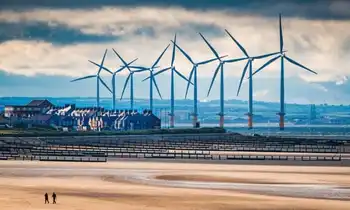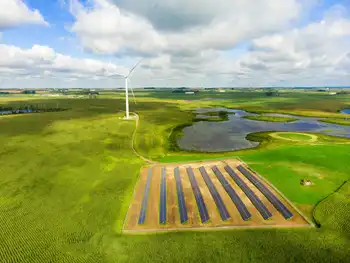More nuclear urged for TVA
By Associated Press
Substation Relay Protection Training
Our customized live online or in‑person group training can be delivered to your staff at your location.

- Live Online
- 12 hours Instructor-led
- Group Training Available
The chairman of the TVA congressional caucus said in a speech to a Tennessee municipal distributors group that nuclear should replace coal as TVA's major source of electric generation over the next 20 years, calling atomic power TVA's best option for "pollution-free, carbon-free," reliable generation.
The Senate's third-ranking Republican also said TVA, the nation's largest public utility, should do more to encourage energy conservation. Tennessee has the highest per capita use of electricity in the country.
Alexander offered his suggestions as the federal power agency begins a series of public hearings to develop a new Integrated Resource Plan to chart the agency's goals for the next two decades. The last plan was done in 1995. A draft for the new one is due next spring and a final version by early 2011.
TVA provides electricity to about 9 million consumers through 158 distributors in Tennessee and parts of Alabama, Mississippi, Kentucky, Georgia, North Carolina and Virginia.
Immediate public meetings are scheduled in Nashville, Chattanooga and Knoxville. Later sessions will be in Huntsville, Alabama, on July 28; Hopkinsville, Kentucky, on July 20; Starkville, Mississippi, on Aug. 4, and Memphis Tennessee on Aug. 6.
"We hope that we will get a large turnout of folks to discuss with us what options they think we should review in providing for future electric energy to the valley," TVA spokeswoman Barbara Martocci said, including suggestions on conservation and renewable energy.
Alexander attributed Tennessee's nation-leading electricity consumption to TVA's low residential rates, the region's high demand for air conditioning and possibly "that TVA and the distributors have not done as good a job in encouraging conservation and efficiency as other parts of the country."
Conservation "is really the low-hanging fruit. It is so much easier to have clean air and low costs if you use less," he said. "If we were just at the national average in terms of our individual use of electric power we could avoid building four nuclear power plants."
Alexander's recommendations for TVA also include eliminating virtually all greenhouse gas emissions from TVA's 11 coal-fired power plants or consider closing some plants, though "at the moment TVA needs all the capacity it has."
Alan Bradley, chief executive officer of Nashville Electric Service and president of the Tennessee municipal distributors group, praised Alexander's suggestions for a "cleaner vision of the future," but wondered what to tell customers convinced renewable solar and wind power should be in TVA's future.
Alexander, who drives a plug-in electric car in Washington, said wind power isn't reliable in the Southeast and solar power is still too expensive. But he hopes in 20 years solar will be affordable for most homeowners and electric cars will crowd the roads.











